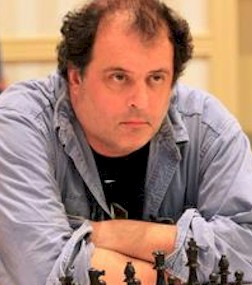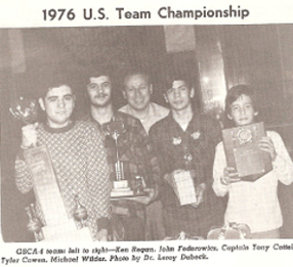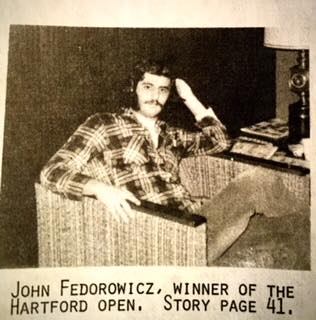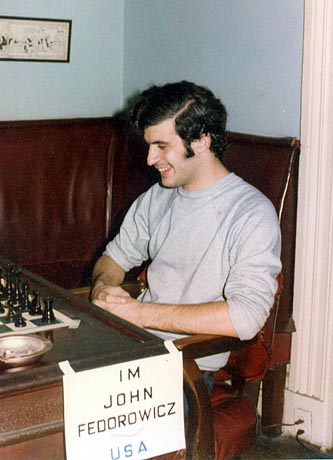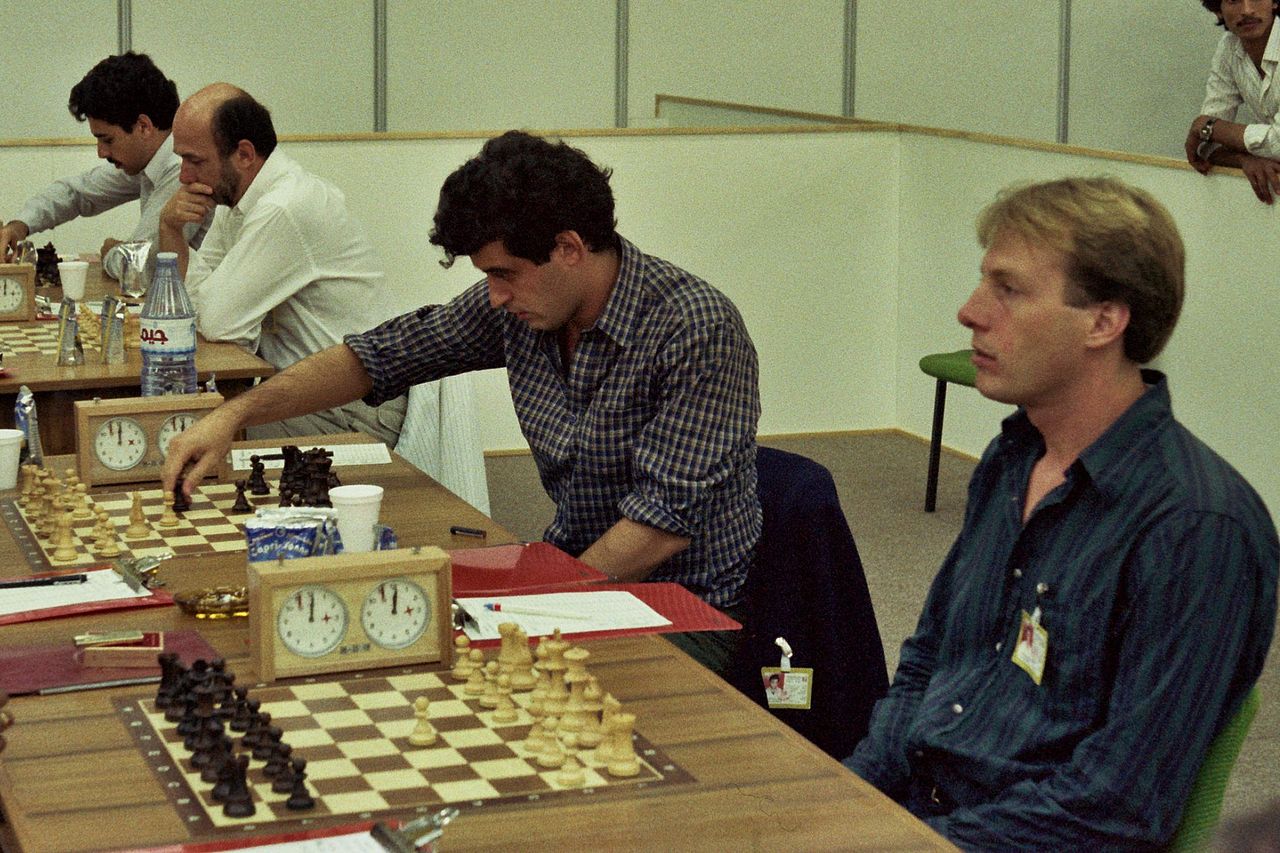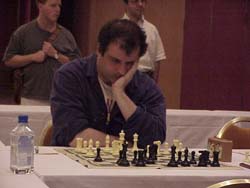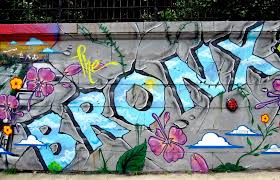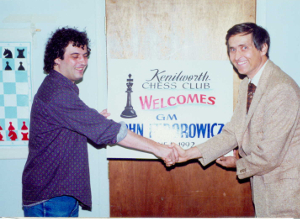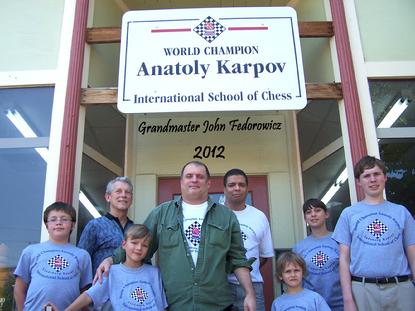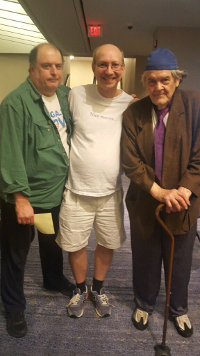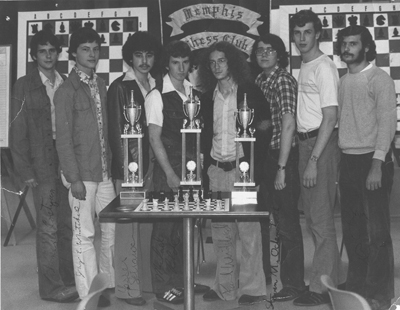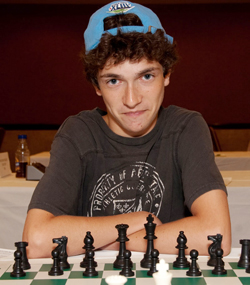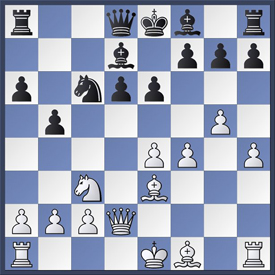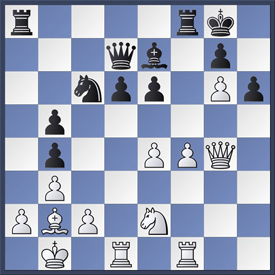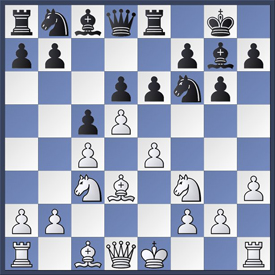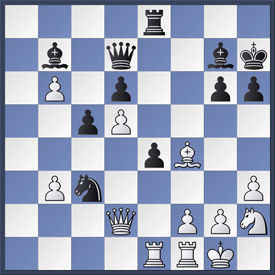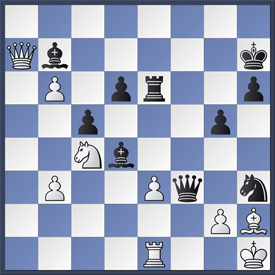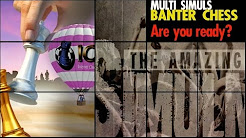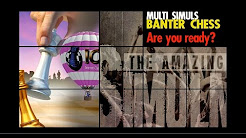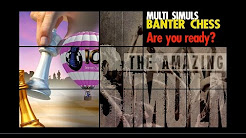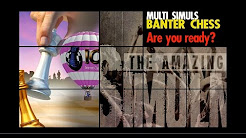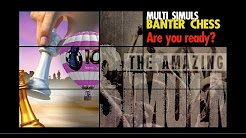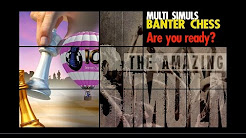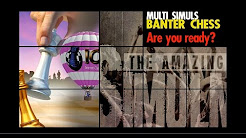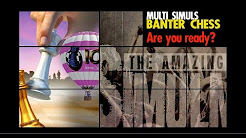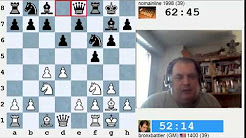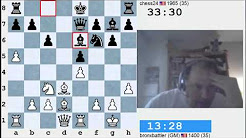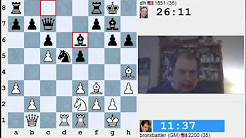|
|||||||||||||||||||




|
|
||||||||||||||||||||||||
|
John Fedorowicz was born on September 27th 1958 in The Bronx, New York. His early interests included baseball and basketball, chess didn't arrive on the scene till later. A lot of his contemporaries were child prodigies, young masters and the like. He first played chess in grammar school with his friends but they didn't know most of the rules. Castling? What's that and don't even think about en passant. Real chess occurred in September of 1972 like a lot of players in his generation. The big event was the Fischer vs Spassky World Championship match in Reyjavik Iceland. He lived with his parents and his younger sister Angela in Piscataway, New Jersey back then. He remember flipping the channels on the T.V. ( No remote controls back then or cable.) when He came to channel 13, the educational network. There was this guy ( Master Shelby Lyman) doing commentary on the match with several strong guests discussing the various positions. He found the names of the openings amusing but tuned in for every game. He never realized it, but that was a significant moment in his life. Several months after the match with some help from his mom he found the Piscataway Chess Club run by Glenn Petersen who later became a good friend and adviser. Like any kid he thought he was good, of course that was a ridiculous notion. After taking many beatings from players of all strengths he decided to hit the big time. There was a stronger club about 10 miles away from where he lived. The Westfield Chess Club had many strong players so he saved his lunch money and joined up. It was November 1973 that he played his first USCF rated game. The tournament was the club championship and there were different categories. He of course continued to believe he was strong but was still put into the lowest section. Some how he unbelievably went 11-0! which gave him his first rating of 1430. He became a master about a year and a half after and was off and running. His first trip abroad was to Sweden and Norway with a high school group. That group included future G.M.'s Michael Rohde, Jon Tisdall, and Ron Henley along with a future World Junior Champion Mark Diesen. The trip was alot of fun and the team did very well. Other trips followed, the National Open in Las Vegas and the famous Lone Pine tournament in California. The Hastings Challengers and the Islington Open rapped up 1976. In 1977 he got his first FIDE rating, 2480, even he had to say he was very overrated. That rating though got him into the 1977/78 Hastings Premier. There he almost defeated former World Champion Tigran Petrosian with a Jon Tisdall novelty in a Keres Attack. He made a respectable score and this gave him good confidence. He wrapped up the I.M. title in 1978. The hunt for the G.M. title was long and brutal. Many near misses norms nearly expiring but in the end he made it by the skin of his teeth. The final norm was made at the DubaHe Olympiad where he had a team beat score of 8-2 on board 4. Making the title was a great experience but was tempered by the United States failing to win the Olympiad after leading most of the way. He is known as "The Fed" or the Rocky Balboa of chess in the chess circuit. 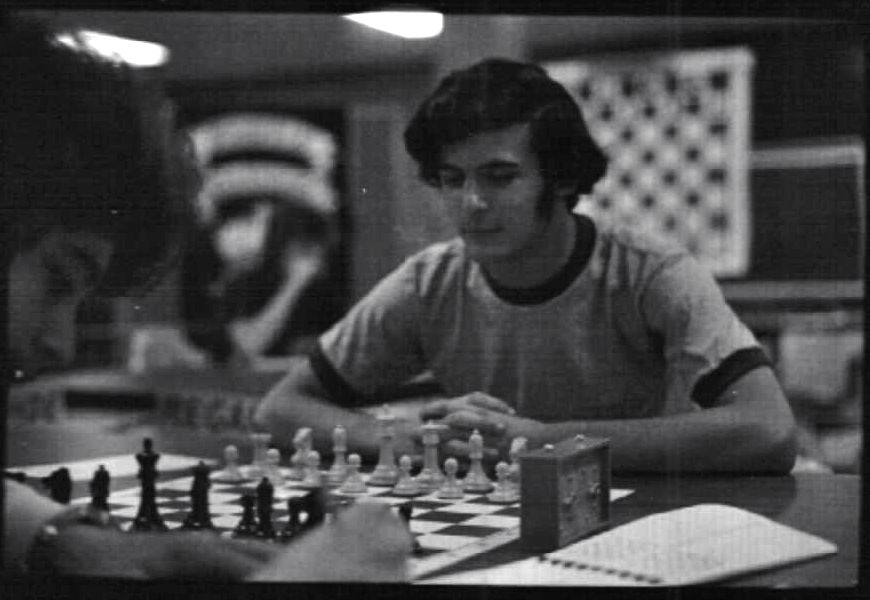 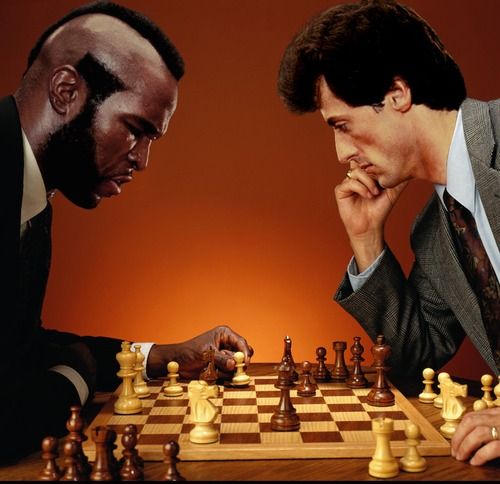 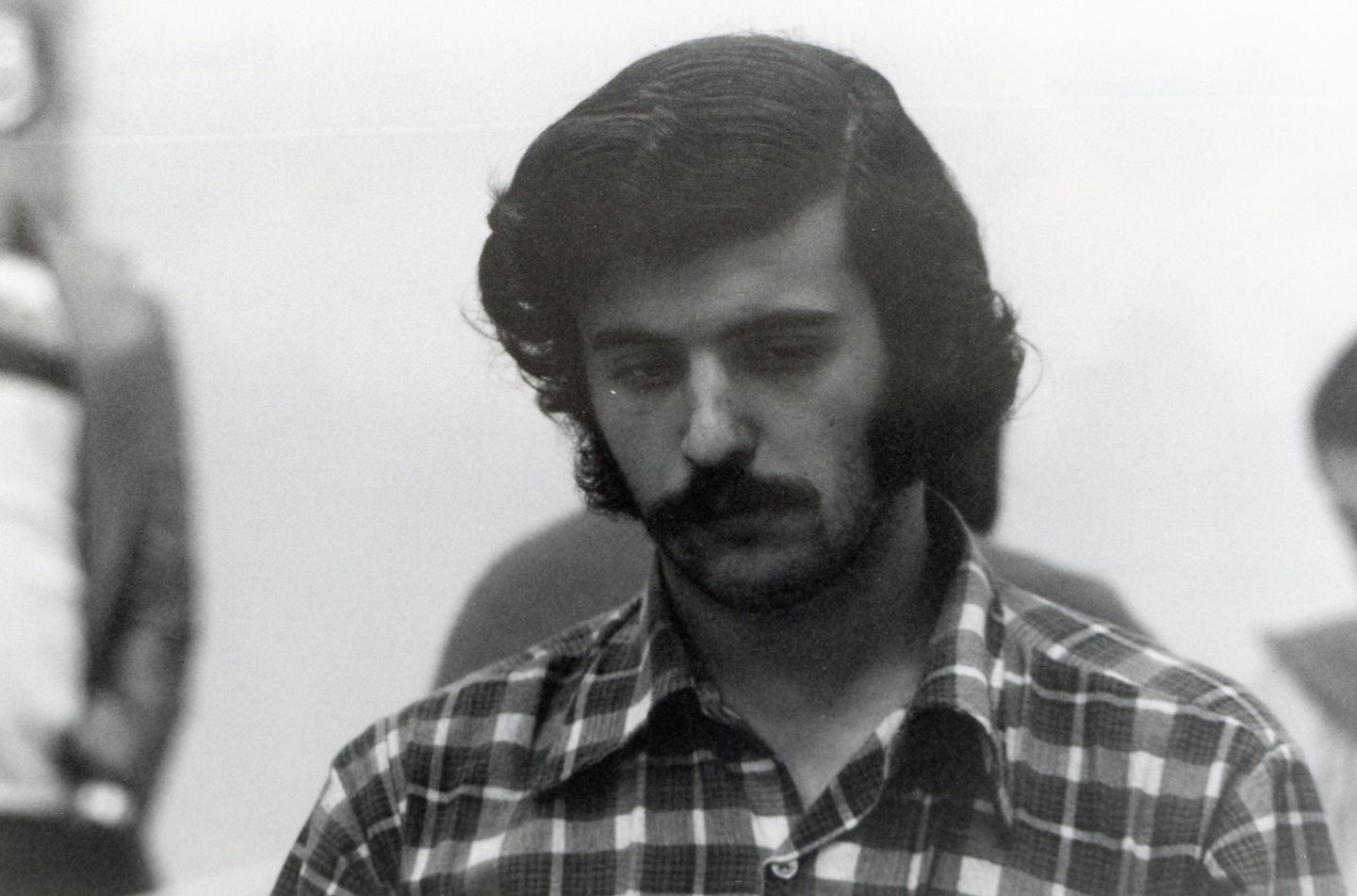 His chess career has had it's ups and downs but what doesn't. He has been been a second numerous times to G.M.'s such as James Tarjan, Tatiana Lematchko, Joel Benjamin, Walter Browne, Nick de firmian and Gata Kamsky. He has gotten 2 Olympic bronze metals, one as a captain, one as a player and one olympic silver medal as a player. Recently he has coached kids teams and was the women's team captain at the 1998 Elista Olympics. He has won every major U.S. tournament except the U.S. Championship (he is still working on that! or maybe not) Some people think his win at the 1989 New York Open was his best result. He was ranked 41st and won with a 7-2 score. He has written a book called "The Complete Benko Gambit" and has contributed to every major chess publication. Nowdays he still plays chess and he is a chessteacher / chesscoach, attending chess camps and writes articles for magazines and played (monthly) on chessclub.com (ICC) and he is a NY Giants fan! |
|
||||||||||||||||||||||||
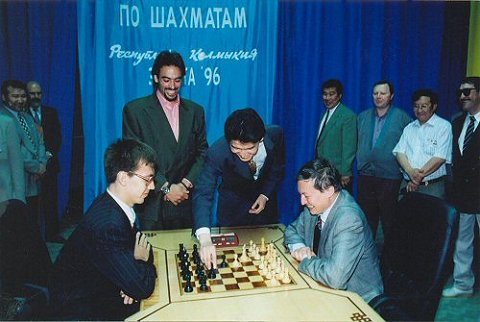 (1996)
(1996)Contenders in the World Championship match are usually assisted by "seconds". These seconds provide advice, help analyze positions (not while the game is in progress, of course), and generally support the player. Gata Kamsky's team in Elista consisted of John Fedorowicz, Pedrag Nikolic and Loek Van Wely. On Monday, June 24, GM Fedorowicz unexpectedly departed Elista for New York. The USCF Assistant Director Eric Johnson interviewed John upon his return. For the past several weeks, GM John Fedorowicz, 37, of New York City, has been assisting the Kamsky team in Elista. John recently returned to the United States, and generously offered to spend a few minutes with USCF to offer his impressions of the FIDE World Championship match. EJ: John, let me start out by saying that information about the match conditions has been somewhat scarce. What exactly will happen if the match ends in a 10:10 tie? JF: Any tie will be broken by a series of two-game mini-matches, played at 40/2, followed by 15 moves in 30 minutes. JE = Eric C. Johnson JF = John Fedorowicz EJ: No sudden death? JF: No sudden death - the next time controls just continue on. There would be no adjournments for the overtime either. EJ: That's a bit faster than the 40/2, 16/1 time control for the first 20 games... JF: That's right. EJ: What's the mood in Elista? Gata is behind, but is he upbeat? Depressed? JF: Gata is just playing chess. At the beginning, maybe because his score against Karpov is not that good, maybe he was a little intimidated. Karpov's openings are always something of a surprise, and maybe that had an influence in the beginning. The "Kamsky system" of preparation might be a bit of overkill - during the off days, we were working 10 hours a day on chess; on the playing days we'd work six hours. Some days, Gata would still be preparing 15 minutes before the game. The seconds didn't feel very good about this... EJ: So it's a bit like cramming... JF: Yes, like he was trying to memorize the games. Plus, it was a bit boring - no distractions. At other tournaments with Gata, we'd play video games or foosball, maybe watch TV. In Elista, it's all chess... EJ: Your comments make it sound as though the preparation was very dry, very technical, just chess. Was there any psychological preparation? In New York, during the Kasparov-Anand match, members of the Anand team were always commenting on the mood of the challenger... JF: I think Gata is more mentally tough than Anand. He's not afraid, he just thinks Karpov is a good player. EJ: How much say does Roustam have in the preparation? Is it true he has the final word over the opening selection? JF: Pretty much - he picks the openings. The King's Indian Defense (in Game Seven) was a disaster. There are some openings that certain people just shouldn't play. EJ: How strong a player is Roustam? He's listed as about 1800 USCF... JF: Not a strong player...I would have said lower than that. EJ: Is he involved in all the major decisions? JF: Oh, yes, he's involved in every decision. He's always making suggestions. The seconds had a joke that we ought to "fine" Roustam $10 for every suggested move that drops a piece; $20 for illegal moves. He always has suggestions. EJ: Have there been any major disputes during the match so far? JF: The Kalmykia and FIDE people are doing a good job...I'm impressed. We rode in on the President's plane, and we got in about 2:30 in the morning. When we arrived, there was a big dinner and celebration. It was a little odd, to have such a big celebration at that time, but the local people are certainly going all out for the match. EJ: We heard something about a dispute over the computer room... JF: It's a small room, about 10 feet or so from the player's rest areas...the players have rest areas just like in New York...where they can retire during the game, watch on the television monitors... During games, there would be people in the computer room printing out analyses and games from databases. EJ: Isn't the computer area really for journalists? JF: No, it's separate from the press room... EJ: I gather that Roustam raised a fuss over the analyses? JF: Roustam was right to be suspicious...the officials agreed to move the computer room away from anywhere near where Karpov would be during the games. EJ: Have any famous persons been in attendance at the games? JF: Some Russian artists, names you wouldn't recognize. Smyslov was at the opening ceremony... EJ: Any visits by Kasparov? JF: No! EJ: What's your impression of the quality of the games so far? JF: Before the match, we didn't expect much - Gata didn't play very much before the match...he's rusty. He played just once, at the tournament in Spain, right before the match. EJ: Maybe the long lay-off was a mistake? JF: Maybe... The problem with the Kamsky's is that they hate everybody (chuckling)... the opponent just tries harder against them. EJ: Back to match conditions. How much of the prize fund will the players receive at the end? JF: I believe it's, what, $1.1 million... I think it's $650,000 to the winner, $450,000 to the loser... I think that's right. EJ: Is there any match paraphernalia available ... posters ... program booklets? JF: Yes, there were those types of things... I have some buttons, and I saw posters, things like that. EJ: Your overall impression of the playing conditions? JF: The thing is pretty well-run. It's not the World Trade Center, but it's well-run. I'm sure the Kamsky's would prefer another venue, but it seemed to me that the spectators were rooting for Gata. EJ: Rooting for him when he fell behind? JF: No, from the beginning. He's younger; Karpov has been world champion for a long time. EJ: There's been some misinformation about why you left Elista - some reports said that you had a death in the family... JF: (Laughing)... No, nothing serious like that. We used the "cover" of a family emergency so that my leaving wouldn't disrupt the match. It was just some personal differences... maybe my "weird" sense of humor... I left on good terms. EJ: Anything else you'd like to say? JF: Just that it was a little boring over there... we stayed in a house with the Kamsky family... three brothers, a couple of nieces, his mother came for a visit... they were very nice, but there was very little to do... EJ: Was there any talk during the match of a future match with Kasparov? JF: I think the winner is supposed to play Kasparov, maybe in 4-5 months... EJ: How do you think either of these two players (Karpov and Kamsky) would fare in such a match? JF: Karpov's chances are pretty good... Kamsky would do well too. Kasparov doesn't look so sharp these days, people aren't afraid of him anymore. EJ: What about plans for the regular FIDE cycle? JF: They are calling the match the "1996 World Championship," so I think Iljumzhinov is trying to make his idea for match or knock-out tournament every year come to pass... I spoke with him on the plane about this... I'm against the idea. The world championship should be a longer match, something really important. EJ: Let me end our discussion on a slightly less serious note... Apparently, Roustam gave a controversial interview right before the match... something about finding a wife for Gata, is that right? JF: Well, Gata has all sorts of people sending him pictures of their daughters... I thought it was pretty funny. I feel bad for Gata, because he's only 22 years old, and he is not allowed to live his life. His father makes all the decisions. If he loses the match, Roustam says Gata will go to medical school. That's a big decision for his father to make. EJ: John, thanks for spending the time with us today. JF: No problem. |
|
 |
|
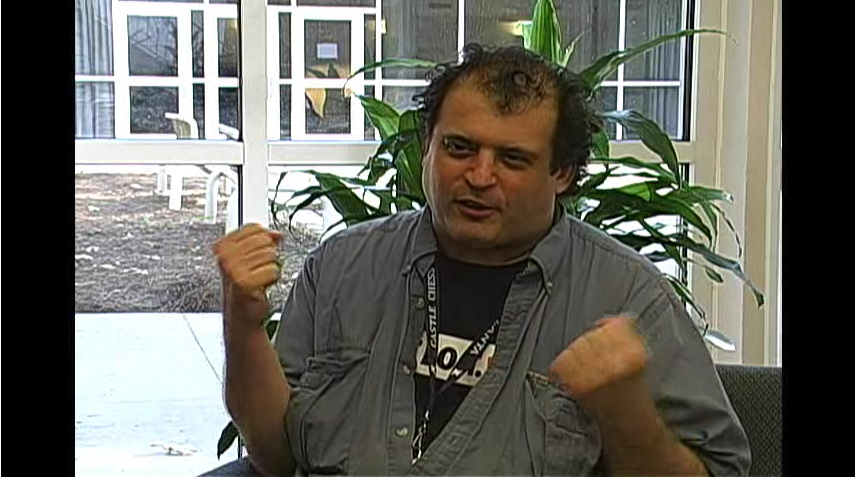 (2006)
(2006)Grandmaster John Fedorowicz tells how he became a strong player and gives advice to aspiring scholastic players while at Castle Chess camp |
|
 |
|
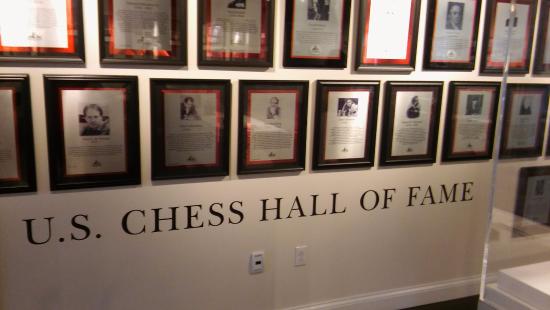 |
|
|
(2009) Interview with a Hall of Famer: GM John Fedorowicz by Jennifer Shahade
|
|
 |
|
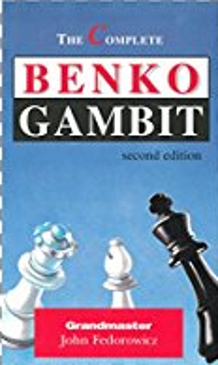 |
The Benko Gambit is one of the most well respected gambits in chess. For this reason it is one of the main lines stemming from the Benoni Defense. This book will explain you the ideas and main lines. Fedorowicz, John (1990). The Complete Benko Gambit. Summit. ISBN 978-0945806141. |
 |
|
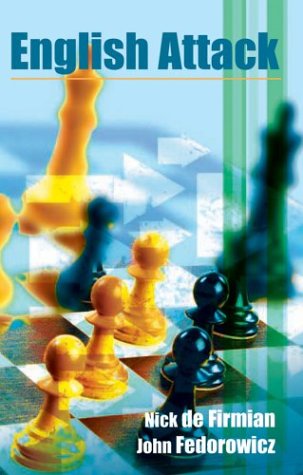 |
Two American grand masters provide a practical survey of the English Attack, one of today’s hottest opening variations. In response to Black’s Najdorf Sicilian, White plays 6 f3, which both supports the center e-pawn and prepares to launch a kingside pawn storm against Black’s castled king. However, Black can indeed postpone castling in favor of queenside expansion and regrouping the knight pair at b6 and d7, and be ready for a swift counter punch when White castles long. Tactics and sharp play abound in this most modern of chess openings where precise knowledge of variations is vital.
Fedorowicz, John; de Firmian, Nick (2004). The English Attack. Sterling. ISBN 978-0945806141. |
GM John Fedorowicz played monthly a Simul on ICC and commentated LIVE on his games ! |
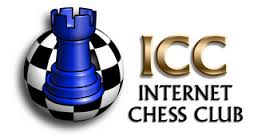 |
2018
|
SimulMaster 2018-08-18 
View the Games here |
SimulMaster 2018-07-21 
View the Games here |
SimulMaster 2018-06-23 
View the Games here |
SimulMaster 2018-05-19 
View the Games here |
|
SimulMaster 2018-05-19 
View the Games here |
SimulMaster 2018-03-31 
View the Games here |
SimulMaster 2018-02-24 
View the Games here |
SimulMaster 2018-02-24 
View the Games here |
|
SimulMaster 2018-01-27 
View the Games here |

2017
|
SimulMaster 2017-12-30 
View the Games here |
SimulMaster 2017-11-26 
View the Games here |
SimulMaster 2017-10-27 
|
SimulMaster 2017-09-30 
View the Games here |
|
SimulMaster 2017-08-12 
View the Games here |
SimulMaster 2017-07-22 
|
SimulMaster 2017-06-24 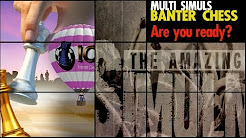
|
SimulMaster 2017-05-20 
|
|
SimulMaster 2017-04-15 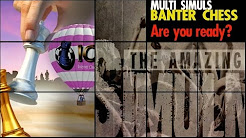
|
SimulMaster 2017-03-04 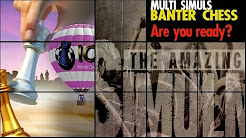
|
SimulMaster 2017-02-25 
|
SimulMaster 2017-01-28 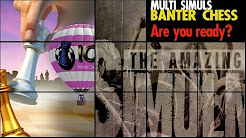
|

2016

2015

2014
|
SimulMaster 2014-03-14 
View the Games here |



